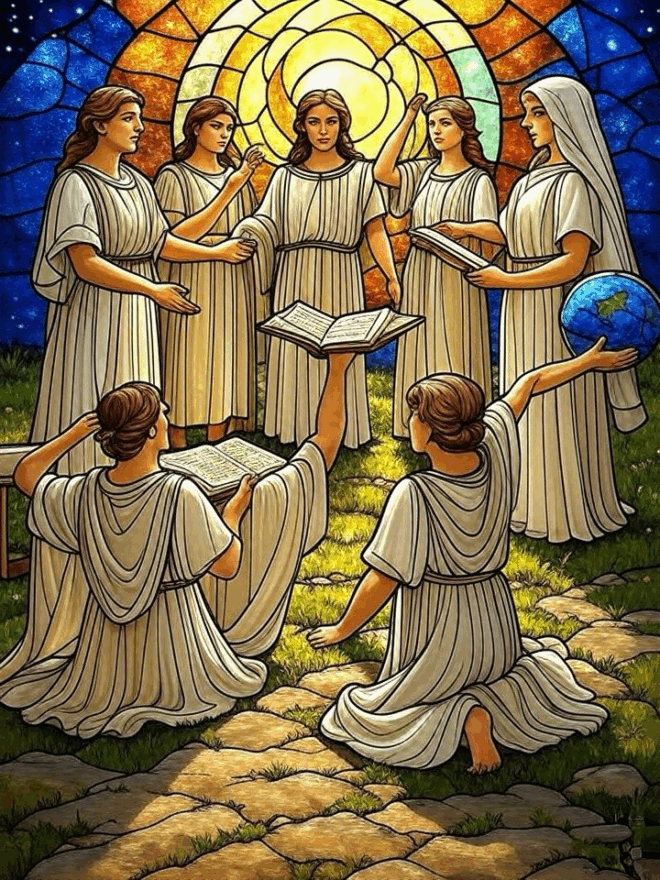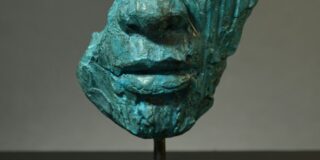
Throughout history, the study of the humanities has been celebrated as a cornerstone of personal growth, ethical citizenship, and the vitality of democratic societies. From the philosophical inquiries of Ancient Greece to the Enlightenment thinkers of Europe, scholars have emphasised that education in history, philosophy, literature, and the arts nurtures more than mere knowledge – it cultivates wisdom, empathy, and civic virtue. In today’s rapidly evolving world, where technological innovation and economic imperatives often dominate educational priorities, the humanities remain indispensable for shaping citizens capable of sustaining and enriching democratic life.
This post explores the timeless wisdom embedded in the humanities tradition, illustrating how it forms the foundation of effective democratic citizenship. It also examines the contemporary relevance of humanities education, with particular attention to Australia’s educational landscape and broader global challenges such as political polarisation, misinformation, and the rise of populism. Ultimately, it argues that the humanities are not peripheral luxuries but essential pillars supporting democracy’s survival and flourishing.
Ancient Foundations: The Humanities as the Bedrock of Democratic Thought
The intellectual legacy of the humanities begins in the ancient world, where philosophers laid the groundwork for ideas about education, citizenship, and governance that still resonate today. Socrates famously declared, “Education is the kindling of a flame, not the filling of a vessel,” emphasising that true learning awakens curiosity and critical inquiry rather than rote memorisation. This insight challenges us to view education as a dynamic process of engagement rather than passive reception.
Aristotle, Socrates’ intellectual heir, deepened this perspective by insisting that “Educating the mind without educating the heart is no education at all.” He recognised that moral and emotional development must accompany intellectual growth for education to be complete. Aristotle’s reflections on democracy also remain strikingly relevant: “In a democracy the poor will have more power than the rich, because there are more of them, and the will of the majority is supreme.” This highlights the importance of majority rule balanced by ethical governance and citizen responsibility.
Plato, Aristotle’s teacher, envisioned an ideal republic where freedom and order coexist. He warned, “Freedom in a democracy is the glory of the state, and, therefore, in a democracy only will the freeman of nature deign to dwell.” His cautionary insights remind us that liberty requires a delicate balance with societal order, a lesson that contemporary democracies must continually heed.
The Romans adapted these ideas to the realities of empire and republic. Cicero, the renowned orator and statesman, stressed the importance of historical knowledge: “To be ignorant of what occurred before you were born is to remain always a child.” His words underscore how history educates citizens to avoid repeating past mistakes and to mature in their civic responsibilities. The Stoic philosopher Seneca advised, “We learn not in the school, but in life” (Non scholae sed vitae discimus), advocating for education that prepares individuals for ethical living and public service rather than mere academic exercise. Emperor-philosopher Marcus Aurelius encapsulated the interconnectedness of individual virtue and community welfare: “What is not good for the beehive, cannot be good for the bees.” This metaphor powerfully illustrates how personal ethics and communal well-being are inseparable in sustaining a functioning polity.
These ancient voices laid a rich foundation, affirming that the humanities – through their cultivation of wisdom, ethics, and critical inquiry – are central to forging citizens capable of sustaining democracy.
Enlightenment Expansion: Reason, Freedom, and Civic Engagement
The Enlightenment period in Europe expanded and deepened the humanistic tradition, emphasising reason, individual rights, and social contracts as the basis for democratic governance. Jean-Jacques Rousseau opened his Social Contract with the stirring declaration, “Man is born free, and everywhere he is in chains,” critiquing how societies often suppress innate liberties and calling for education to restore them. Rousseau’s ideas inspired generations to envision education as a means of liberating the individual within the community.
Immanuel Kant famously urged, “Dare to know! Have the courage to use your own understanding,” defining Enlightenment as the emergence from self-imposed immaturity through rational and humanistic inquiry. Kant’s call for intellectual courage remains a clarion call for citizens to engage actively and thoughtfully in democratic life.
Montesquieu warned, “The tyranny of a prince in an oligarchy is not so dangerous to the public welfare as the apathy of a citizen in a democracy,” underscoring that democracy’s survival depends not only on just laws but on the active, informed participation of its citizens. This insight remains profoundly relevant in an age where voter disengagement and political cynicism threaten democratic vitality.
The Enlightenment thinkers reaffirmed that the humanities are indispensable for cultivating the reasoned discourse, ethical reflection, and civic engagement that democracy requires. They remind us that democracy is not a static system, but a living process demanding constant vigilance and education.
The Humanities in Contemporary Education: A Vital Role in Democracy
In today’s world, the humanities encompass disciplines such as history, philosophy, literature, art, and cultural studies. Despite their critical importance, these fields often face marginalisation amid a global emphasis on science, technology, engineering and mathematics (STEM) and career-oriented degrees. Yet, the humanities remain indispensable for nurturing informed, empathetic, and critically minded citizens essential to democracy’s functioning.
Democracy is not sustained merely by procedural mechanisms such as voting or legal frameworks; it thrives on the active participation of citizens capable of reasoned discourse, empathy toward diverse perspectives, and a commitment to ethical governance. Martha Nussbaum, in her seminal work Not for Profit: Why Democracy Needs the Humanities, argues that the humanities cultivate qualities such as empathy, respect for difference, and critical thinking – foundations of democratic citizenship. Without these, societies risk fragmentation, tribalism or authoritarian regression.
In Australia, the integration of Humanities and Social Sciences (HASS) into the national curriculum reflects this recognition. The Australian Curriculum emphasizes that HASS education develops problem-solving, critical thinking and an understanding of history and environment, skills essential for appreciating democratic institutions. Australia’s unique history, shaped by colonial legacies, Indigenous heritage and multicultural immigration, demands citizens who can reflect critically on past injustices such as the Stolen Generations and the White Australia Policy to foster inclusive policies today.
The humanities serve as a historical compass, tracing the evolution of communities and democracies from ancient origins to contemporary realities. In Australia, humanities education illuminates the nation’s democratic maturation, from Federation in 1901, influenced by British parliamentary traditions, to the 1967 referendum granting Indigenous Australians citizenship rights, and ongoing debates over constitutional recognition of First Nations peoples. Literature, such as the works of Patrick White, and historical narratives like the ANZAC legend, humanise abstract democratic principles, revealing how community bonds form amid diversity. Without this engagement, democracy risks being viewed as a static system rather than a dynamic process shaped by human agency.
Humanities, Critical Thinking, and Empathy: Building Blocks of Democratic Citizenship
The humanities foster three vital skills for democratic participation: critical thinking, empathy, and ethical reasoning.
- Critical Thinking: Engaging with philosophical texts, historical analysis, and literary interpretation hones the ability to dissect arguments, identify biases, and evaluate evidence. In an era rife with misinformation, these skills are essential. For example, studying Shakespeare’s plays encourages readers to question power dynamics and authority, mirroring real-world political scrutiny.
- Empathy: Humanities expose students to diverse narratives and experiences. Reading works such as Toni Morrison’s explorations of racial injustice cultivates understanding of marginalised perspectives, promoting policies grounded in inclusivity and social justice.
- Ethical Reasoning: Philosophical inquiry into moral principles, from Kant’s categorical imperative to Rawls’ theory of justice, equips citizens to navigate complex dilemmas in public life – whether voting on welfare reforms or advocating for human rights.
These skills manifest in practical civic engagement. Humanities-based civic education programs inspire activism by exploring historical movements like the civil rights struggle. In Australia, the civics and citizenship curriculum strand uses humanities to foster responsible participation and a nuanced understanding of representative democracy. Globally, initiatives such as the Stanford Humanities Centre demonstrate how cultural studies build respect and concern for others, countering divisive echo chambers.
Challenges and Consequences: The Decline of Humanities and Democratic Risks
The marginalisation of humanities education has profound implications for democracy, as evidenced by developments in the United States and Europe.
United States: Humanities enrolment has declined sharply – by over 25% since 2010 – amid a focus on STEM and career-oriented fields. This decline correlates with diminished civic literacy, increased susceptibility to misinformation, and heightened political polarisation. The 2020 US. presidential election and the subsequent Capitol Riot on January 6, 2021, highlighted how disinformation campaigns and echo chambers erode trust in democratic institutions. Humanities education, with its emphasis on critical analysis and empathy, could counteract these trends by fostering media literacy and nuanced political understanding.
Research links the humanities’ decline to democratic backsliding. A Brookings Institution report notes that misinformation undermines public confidence, particularly among conservative voters susceptible to echo chamber effects. Without ethical reasoning and critical inquiry, citizens may fall prey to false narratives and tribalistic divisions. Humanities curricula that explore historical episodes such as McCarthyism illustrate the dangers of paranoia and censorship, offering lessons for contemporary vigilance.
In contrast, Australia’s sustained emphasis on HASS education provides a model for combating similar threats. Its civics curriculum integrates media literacy and historical reflection, strengthening democratic resilience.
Europe: Democratic challenges in Europe often centre on the rise of populism, frequently intertwined with immigration debates. Parties like France’s National Rally and Italy’s Brothers of Italy exploit fears of cultural erosion, framing migrants as threats to national identity. This narrow redefinition of citizenship undermines liberal democratic values such as inclusivity and human rights.
Humanities education can mitigate these divisions by fostering empathy through cultural studies of migration histories and ethical philosophy on asylum rights. In Germany, programs that integrate history and literature have helped counter the narratives of right-wing populists like the Alternative for Germany (AfD) by humanising refugees and immigrants. Yet, declining humanities funding across Europe mirrors U.S. trends, contributing to populism’s appeal among those feeling culturally displaced.
Australia’s multicultural policies, informed by humanities insights into immigrant histories, provide a compelling counterexample. By promoting integration and celebrating diversity, humanities education supports social cohesion and democratic inclusion.
Balancing Humanities with Science and Professional Education
While the humanities are crucial, it is important to recognise the complementary role of sciences and professional degrees in a well-rounded education. Accounting ensures fiscal responsibility in governance; law upholds the rule of law; sciences drive innovation that improves quality of life and addresses global challenges like climate change.
However, these fields often emphasise empirical data and technical proficiency at the expense of interpretive and ethical skills. An overemphasis on profit-driven education risks producing technicians rather than thoughtful citizens. For example, Australia’s 2020 Job-ready Graduates package, which increased fees for humanities degrees, risks deterring students from these vital fields and weakening civic education.
Integrating humanities into scientific and professional curricula enriches these disciplines. Ethical philosophy in law educates lawyers about justice beyond statutes; historical context in scientific ethics informs responsible innovation. Such interdisciplinary education ensures professionals act as conscientious citizens contributing to democratic life.
Global Implications and the Path Forward
Globally, neglecting humanities education threatens democratic stability. Rising authoritarianism in countries from Brazil to India demonstrates how weakened civic culture undermines democratic norms. To counter this, governments and educational institutions must subsidise and prioritise humanities, fostering democratic culture alongside scientific and professional expertise.
Australia’s example illustrates how a balanced curriculum that values humanities, strengthens citizenship and democratic resilience. Conversely, the experiences of the United States and Europe reveal the dangers of sidelining humanities amid political polarisation, misinformation, and populist backlashes.
The solution lies not in choosing between humanities and sciences but in integrating them to produce well-rounded citizens equipped for the complexities of modern democratic life.
Conclusion: The Humanities as Democracy’s Lifeblood
The study of humanities is far from an academic luxury; it is a democratic necessity. By tracing our communal journeys, cultivating critical thinking, empathy, and ethical reasoning, and confronting global challenges, the humanities sustain the very foundations of democratic citizenship.
Australia’s commitment to humanities education offers a hopeful model, demonstrating how these disciplines nurture informed, engaged citizens who appreciate democracy as a dynamic, inclusive process. In contrast, the decline of humanities education in the United States and Europe serves as a cautionary tale of democratic fragility in the face of polarisation and populism.
To ensure the survival and flourishing of democracy worldwide, we must renew our commitment to the humanities – not only as a field of study, but as a vital element of education that empowers citizens to think deeply, act ethically, and participate fully in the democratic experiment. The flame kindled by Socrates centuries ago still burns brightly, calling us to embrace the humanities as the lifeblood of democracy itself.



